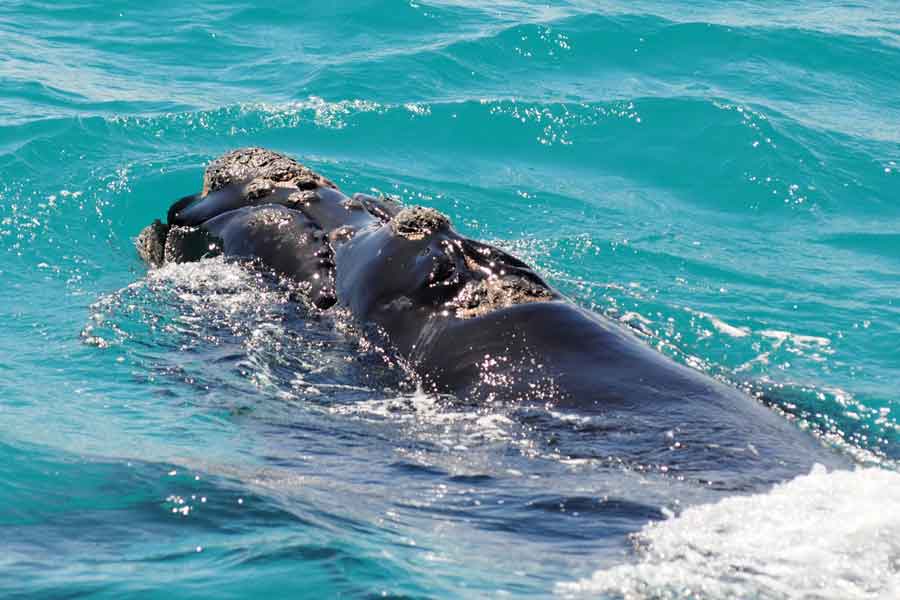
For centuries, humans have harassed whales, reducing their global populations to ten percent of what they were a hundred years ago. Despite this, whales continue to approach us and our vessels. The southern right whale, in particular, is a highly sociable and curious animal. It is common to see them approaching boats and divers, brushing against them with their bodies, and even playing with them.
It is curious, then, that many countries have created laws prohibiting human contact with these animals. Even considering a logical principle of nature that states when two animals, one weighing 40 tons and the other weighing 80 kilograms (obviously unarmed), come into contact, it is the smaller animal that could be in danger. But even more curious is the fact that when such laws are enacted, they are drafted by politicians or public officials who not only fail to consult specialized biologists but are also unaware of the scientific research published by these experts on the subject.
Roger Payne, one of the world’s leading experts on cetaceans, sums up his work in a book titled «Among Whales,» where he states: «There is a danger that in our zeal to protect whales, we may be overprotecting them. If this were to happen, we would be repressing the kind of friendly relationship that would otherwise develop between humans and whales. A law that keeps people separate from whales, blind to this kind of benefit (and the existing ones undoubtedly are), will deprive the world of what could otherwise be a relationship of trust and mutual friendship between our species and whales, a relationship that could change our lives in a grand and unexpected way. And, in the process, secure a much better future for the whales.»
Undoubtedly, humans need to reconsider our relationship with the rest of the animals that inhabit the planet and critically evaluate our actions. It may seem incredible, but after hunting them, bleeding them, and almost exterminating them, after filling the oceans with sonic pollution, after polluting the seas with oil spills, pesticides, and other chemicals, and while we watch the Japanese ruthlessly destroy them without any control, we lament and create laws to protect them when a human being approaches a whale with the simple desire to stroke its back.
«One cannot defend what one does not love, and one cannot love what one does not know.»

